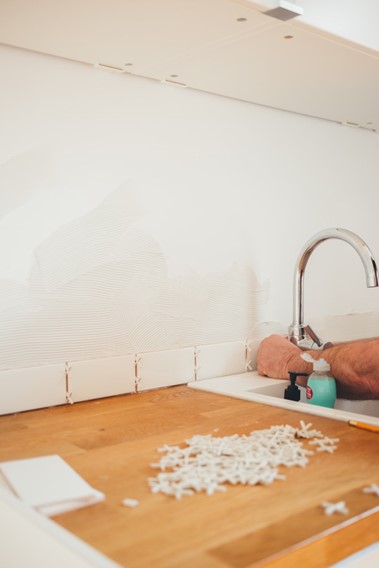Unexpected plumbing problems can be a nightmare for property managers. While well-managed rental units will always strive for efficiency, clogged drains, faulty water heaters, and leaky faucets can arise unexpectedly. Each plumbing problem can disrupt tenants’ lives and lead to costly repairs if not addressed promptly. This article will explore strategies for property managers to tackle these problems effectively, ensuring smooth operations and maintaining tenant satisfaction in rental units.
Understanding Common Plumbing Issues
To manage plumbing crises effectively, property managers should first understand the most common plumbing issues that rentals might face. According to Cole Pepper Plumbing, leaks are perhaps the most frequent concern, ranging from dripping faucets to hidden pipe leaks. These can result in water damage and mold, significantly impacting the long-term value of the property. Clogged drains are another prevalent issue, often caused by hair, food particles, or grease buildup, which may result in slow drainage and potentially extensive water damage.
Be sure to keep a checklist of these issues: this will streamline your response efforts when troubles arise. Once you know what you are dealing with, you can look into local plumbing services that can handle the job on the spot. A well-informed property manager can describe problems clearly and initiate repairs with the help of a professional.
Maintaining Open Communication with Tenants
Tenants should feel comfortable reporting problems as soon as they arise, whether it’s a small drip or a major leak. Property managers should encourage communication by regularly checking in with tenants about the functioning of their plumbing systems. Regular updates through email or tenant meetings can further enhance awareness.
During such updates, property managers can educate tenants about potential plumbing problems and give them practical maintenance tips. They can explain how to properly dispose of items that could clog drains and emphasize the importance of not pouring grease down sinks. Know that responsive communication builds trust and satisfaction among tenants.
Emergency Preparedness and Response Plans
An emergency preparedness plan should outline specific steps to take when a plumbing problem occurs. An effective response plan includes a list of reliable plumbers who can be contacted immediately. Property managers should also gather essential tools and materials for emergency repairs. Having a well-stocked maintenance kit improves response time and enables you to handle smaller issues directly if necessary. Familiarize yourself with the property's plumbing layout, including shut-off valves and access points, so you can control water flow during emergencies. By enhancing preparedness, property managers can reduce panic and damage when unexpected plumbing problems occur.
Investing in Preventative Maintenance
A proactive approach to plumbing can save property managers time and money in the long run. Regular inspections of the plumbing system can identify potential issues before they escalate. Monthly or quarterly check-ups can include examining pipes for corrosion, ensuring shut-off valves are functioning, and checking for signs of leaks.
Invest in high-quality, durable plumbing fixtures to minimize future issues. Cheaper, lower-quality materials might save money initially but can lead to higher repair costs later. Property managers should also consider employing a reliable plumbing service to conduct annual evaluations and maintenance. Simple practices like regularly cleaning drains and reporting minor problems immediately can lead to extensive savings on repairs and prevent property devaluation.
Utilizing Technology for Efficient Management
Many property managers are adopting management software that includes maintenance request functionalities. This type of technology allows tenants to report problems quickly and efficiently, improving communication and tracking the status of repairs. Smart home technology offers exciting possibilities for managing plumbing systems. Smart water sensors can detect leaks and alert property managers immediately via smartphone notifications.
Integrating these technologies is an investment that may lead to substantial long-term benefits. The data collected can also provide insights into common plumbing problems over time and enable predictive maintenance strategies that help property managers stay ahead of potential issues.
Building Relationships with Local Plumbers
Effective crisis management starts with strong relationships with local professionals. Having established partnerships provides property managers with reliable resources for urgent plumbing issues. Regularly engaging with these professionals can lead to preferred rates and prioritized service during emergencies—important factors that can significantly impact response times.
Organizing meetings or workshops with local plumbers can enhance your understanding of plumbing systems and common issues. Such interactions can also deepen engagement so that plumbing professionals understand your properties' unique needs. Networking can extend beyond just local plumbers: you should keep connections with suppliers for better rates for necessary maintenance materials. Network with other property managers to share experiences regarding plumbing challenges and provide invaluable insights into managing these issues effectively.
Managing plumbing problems in rental units may pose challenges, but effectively addressing and preventing these issues can result in tenant satisfaction and property value preservation. By understanding common plumbing problems, maintaining open communication, developing emergency preparedness plans, investing in preventative maintenance, utilizing technology, and fostering relationships with local plumbers, property managers can navigate plumbing crises with confidence and skill. Through these strategies, you can ensure that property management runs smoothly and keeps tenants happy and comfortable.










